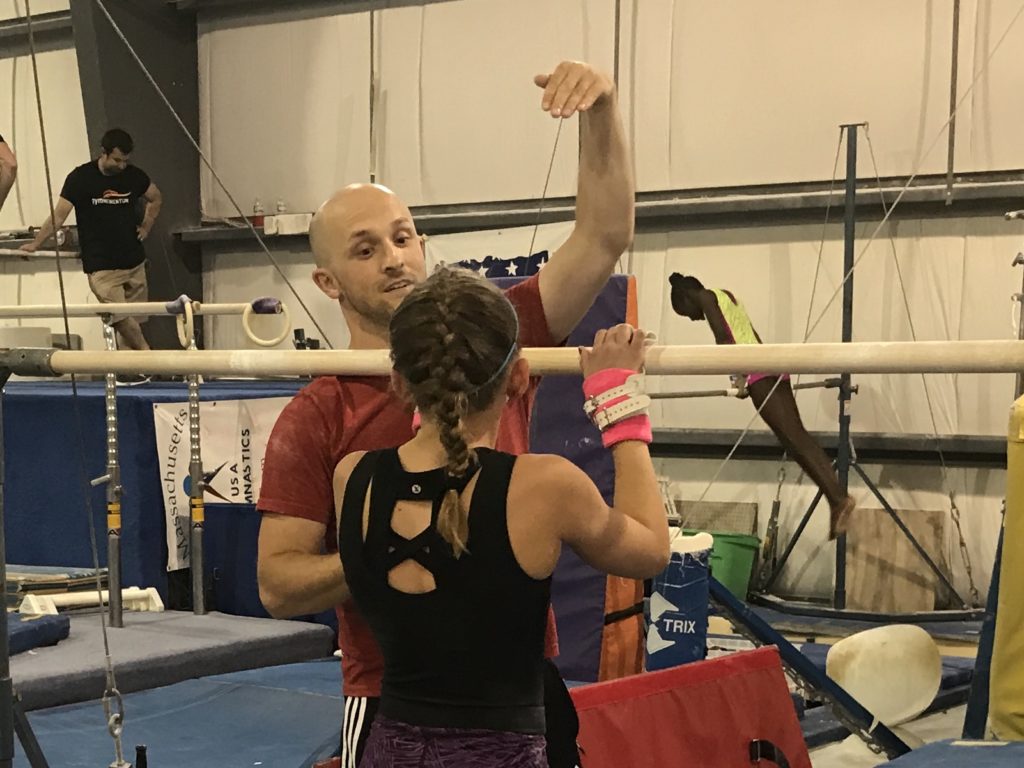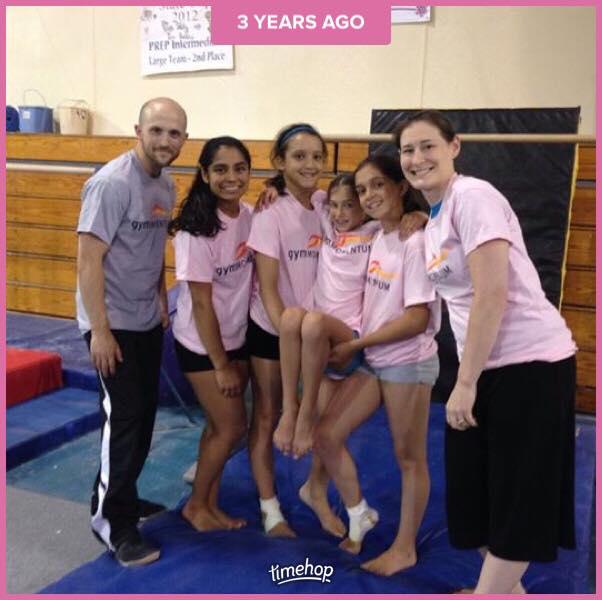I got a text this morning that no one wants to get. Informing me that a colleague had apparently been murdered. Chris Grover has come to a number of Gym Momentum Training Camps and Clinics. In fact, I am pretty sure, he was at the first one we ever held and attended this last summer with 20+ gymnasts.
Right now I am shocked. Words cannot express what I am feeling. My heart breaks for his children. My heart breaks for the gymnasts he worked with. We will all mourn in our own way. Right now I want to focus on how to help the gymnasts get through this.
After describing such sad events, all you can think is- This is something that no child should have to go through.
I’m sure you’ve heard a variation of this throughout your life. Maybe you’ve even said something similar to the following:
The truth is, if you live long enough, you’re most likely going to experience some significantly stressful event: a loved one will die. You’ll get sick. Someone will mistreat you. The list goes on.
How do we convince an 8-year-old gymnast that it’s safe to return to the gym after such a tragedy? The news story is going to dominate the area for weeks and will in some way change every child at the gym.
Our 24/7 news culture — in conjunction with easily accessible iPads, cell phones, and televisions — provides a window to events that both children and adults grapple to understand. And when bad things happen it is very natural and healthy for children to bring up questions at home or in the gym
When terrible events happen, children, like the rest of us, need to wrap their minds around it. They’re seeing images and hearing stories that are hard to absorb.
Decisions about what to say, and what not to say, should be guided by a child’s developmental age. Among his tips for parents and educators:
- It’s important to listen to children to begin to understand how they understand the trauma. What you’re scared about, as an adult, may not be what they’re scared about … and this is likely to be different for children at different developmental ages. Reality is that you are probably going to need a professional therapist present.
- Prepare to answer the “why” questions that will inevitably come. Children are inclined to ask, for example, “Why did this happen? ” They’re owed an explanation, but the answer should be tailored to a child’s age. The message is further reinforced within parenting resources available on the Mr. Rogers website, including a quote from the late Fred Rogers: “When I was a boy and I would see scary things in the news, my mother would say to me, ‘Look for the helpers. You will always find people who are helping.’ To this day, especially in times of ‘disaster,’ I remember my mother’s words and I am always comforted by realizing that there are still so many helpers — so many caring people in this world.”
- Protect your child from seeing traumatic visual images over and over again. This goes for adults, too, You should also protect yourself from being re-traumatized.
- Self-soothing techniques can pay off in dividends. If kids are feeling really stressed and worked up, deep breathing, getting exercise, listening to music and other strategies for calming down and managing anxiety can really help.
- Modeling how you manage through tough times also helps to build resilience in children. Your gymnasts will watch how you respond to scary events, and they take cues from you. So often events that are scary for kids are scary for adults, too. As parents and educators, we also have to take care of ourselves.
What should you not say? The guiding principle is to talk to kids in ways they understand, while being careful to not provide too much detail to a younger child.
When children can understand why, when they can make a scary event coherent, they are better able to trust again. Spend some time thinking — and talk to other coaches and educators you trust — about how to talk to your gymnasts in a way that will help them understand and make sense of events that may otherwise feel unpredictable and overwhelming.
It is obvious that as gymnastics professionals we need to do something to help the gymnasts. I am open to any ideas.
Peace,
Tony






